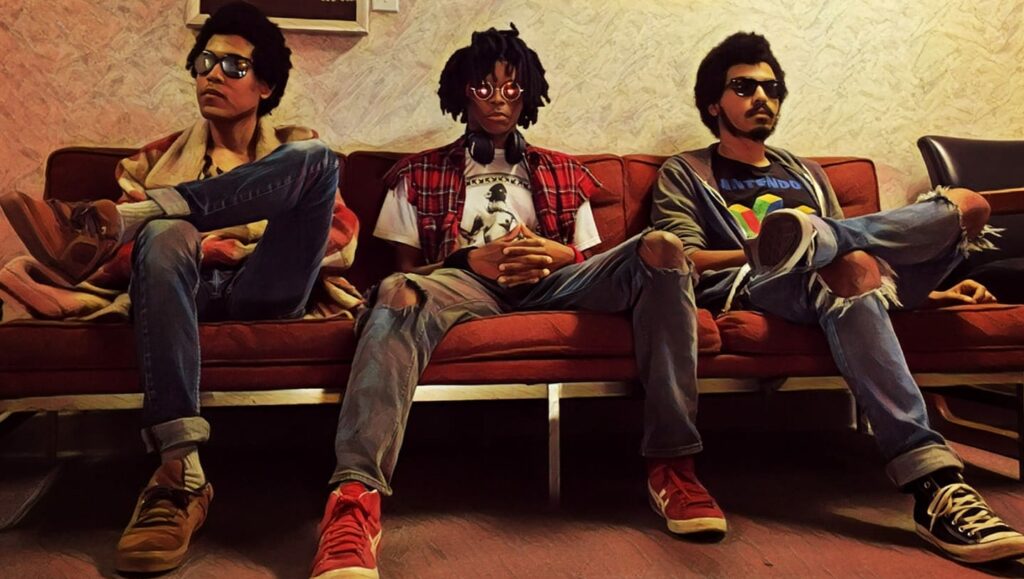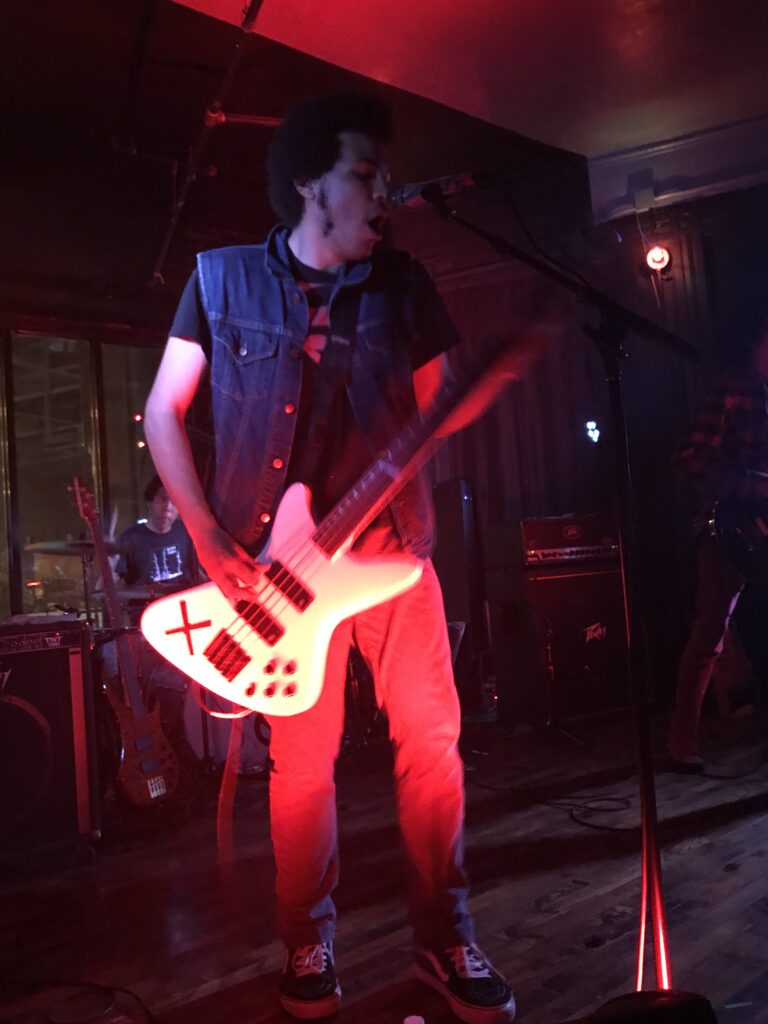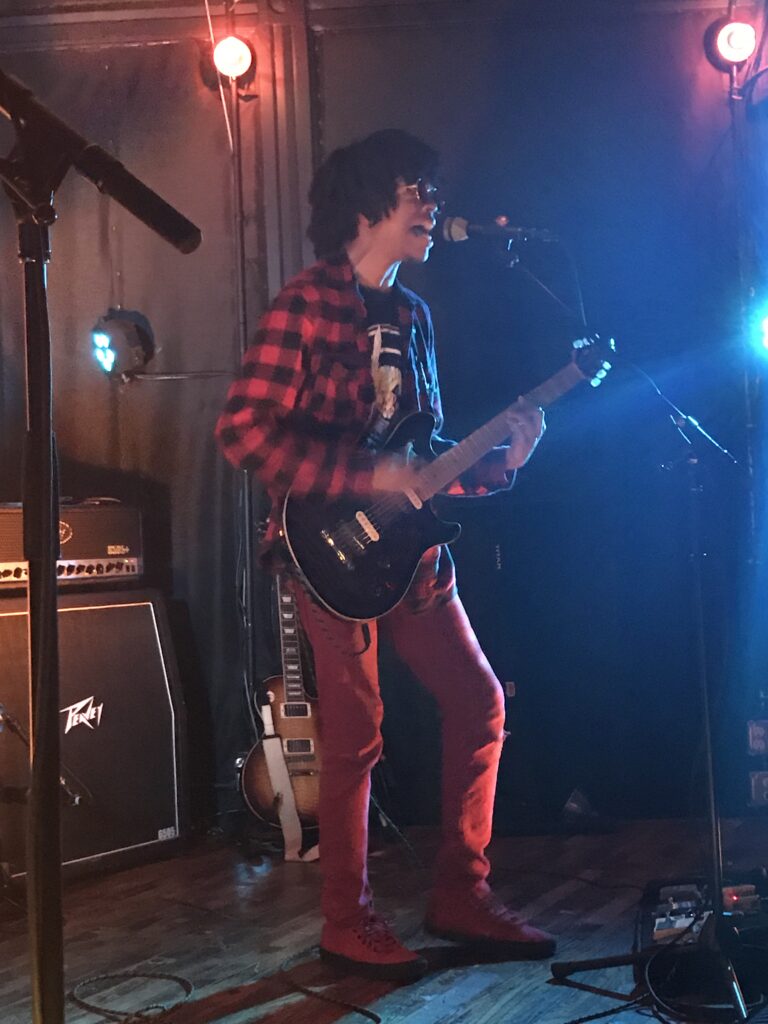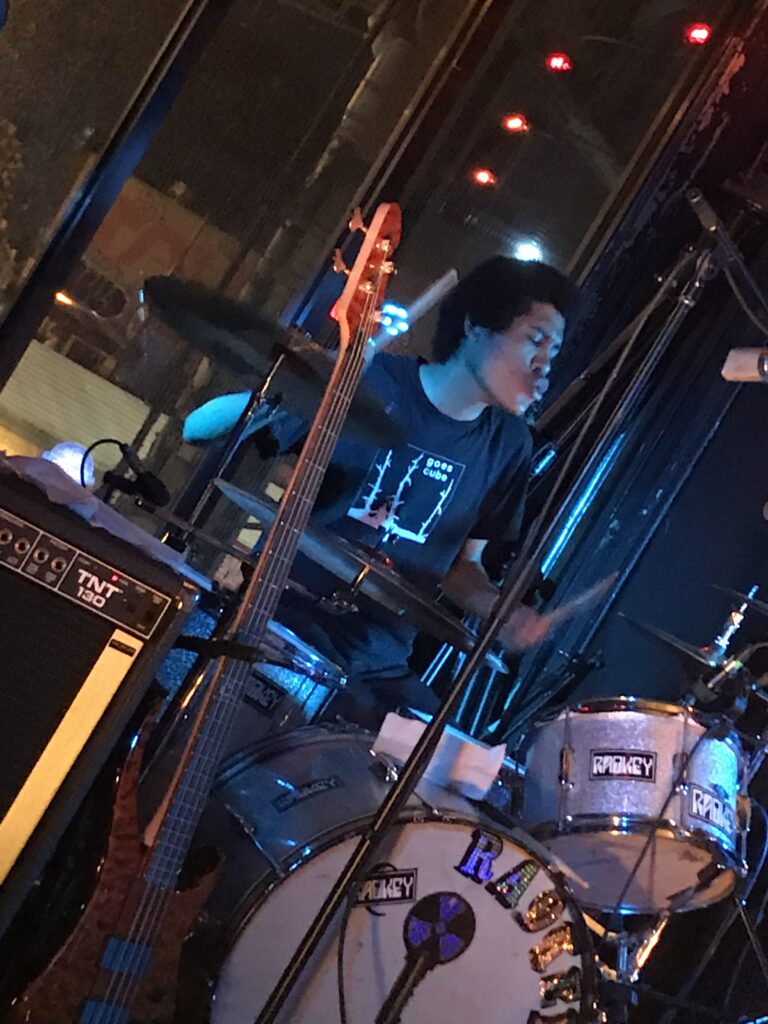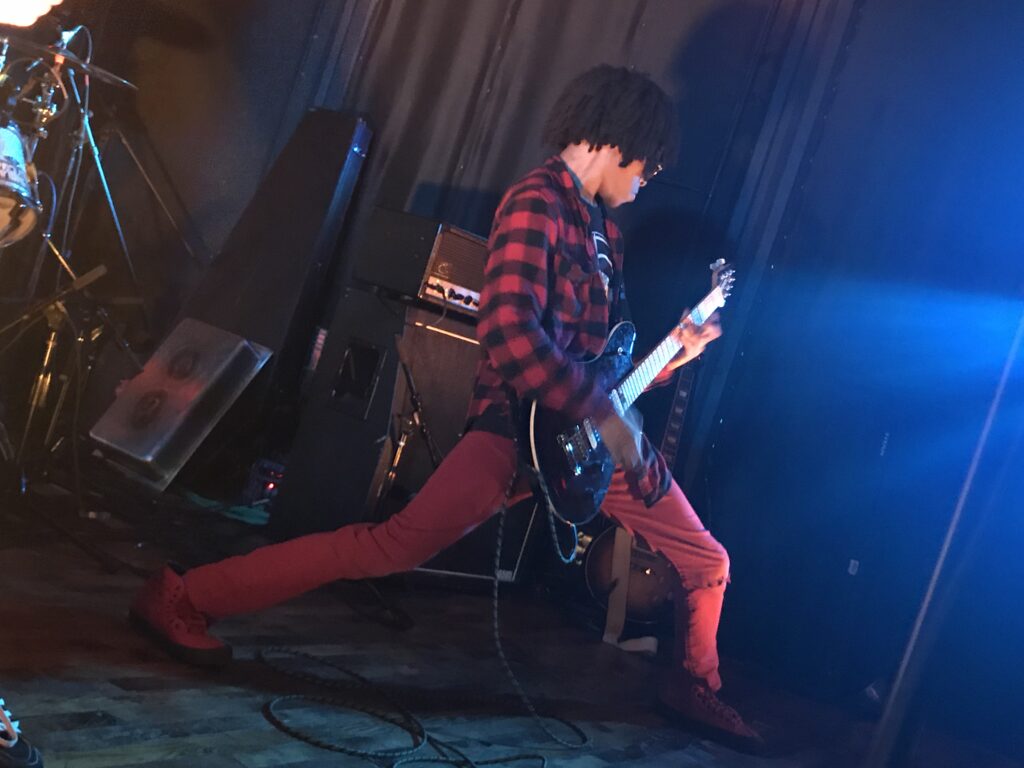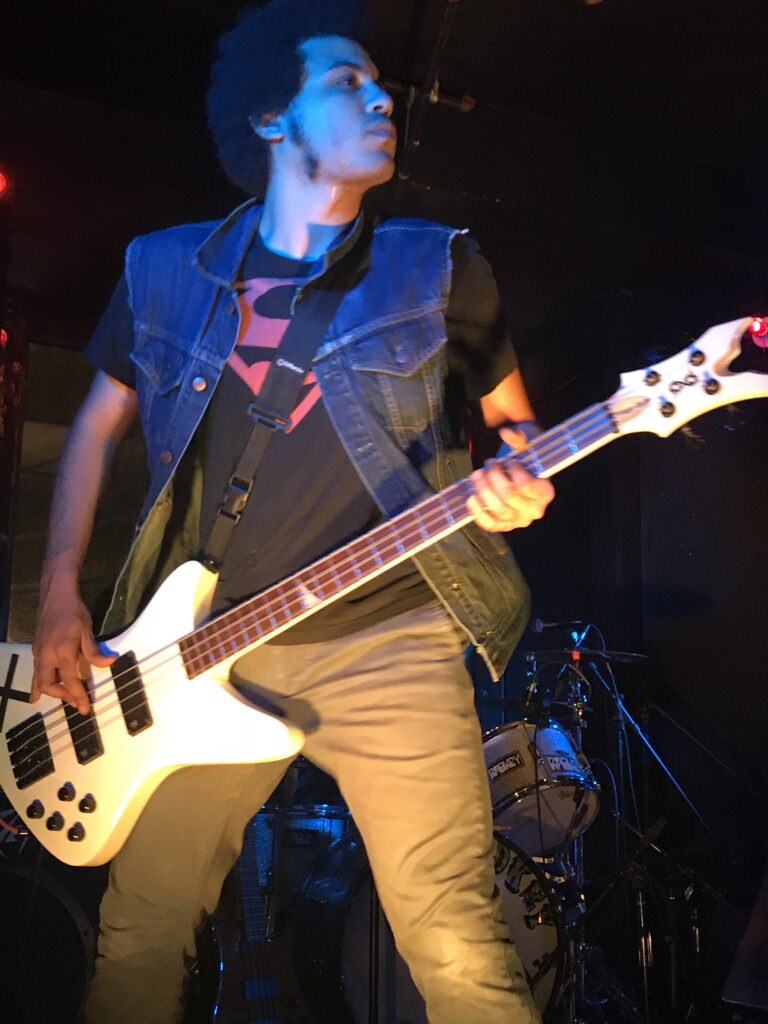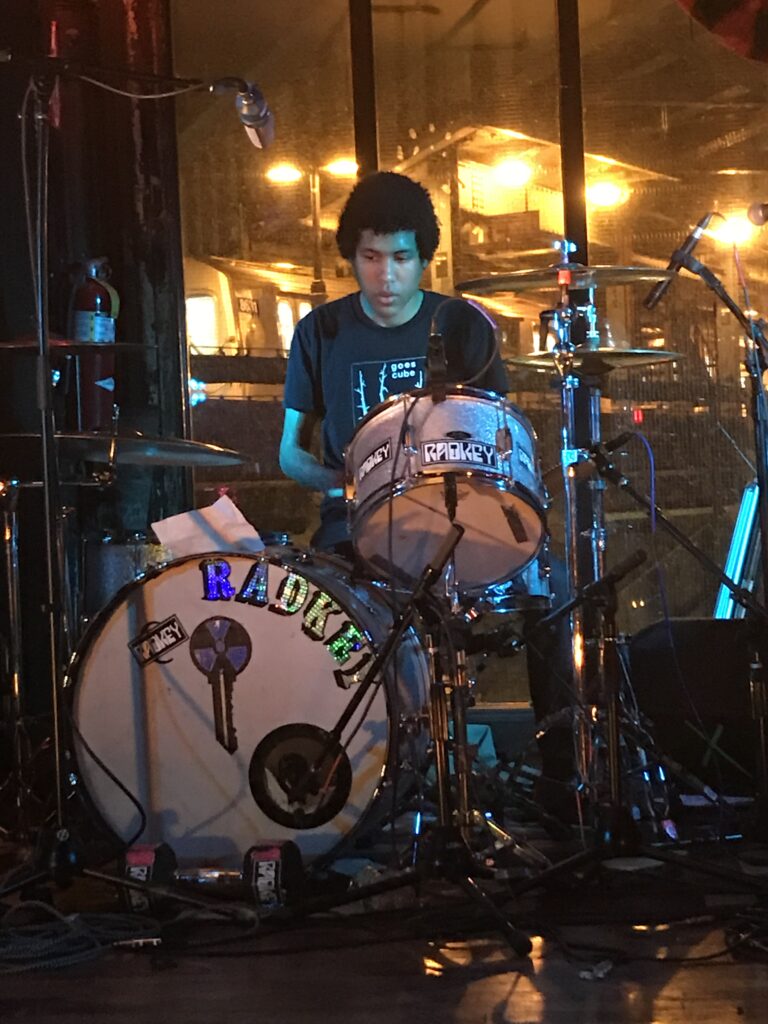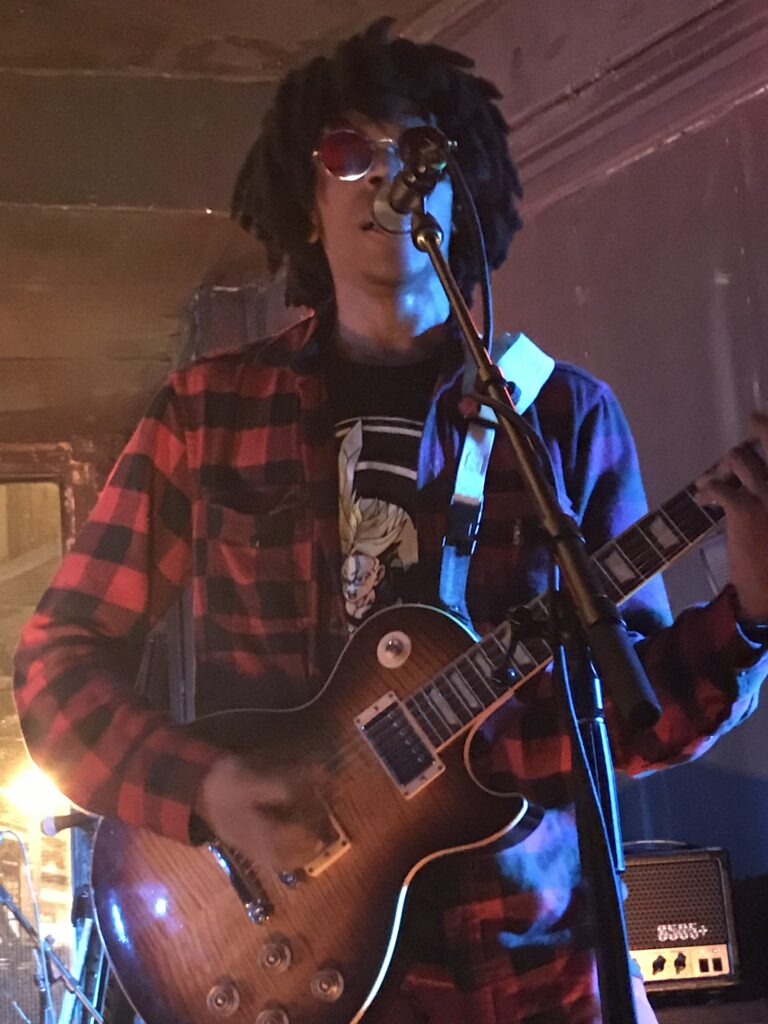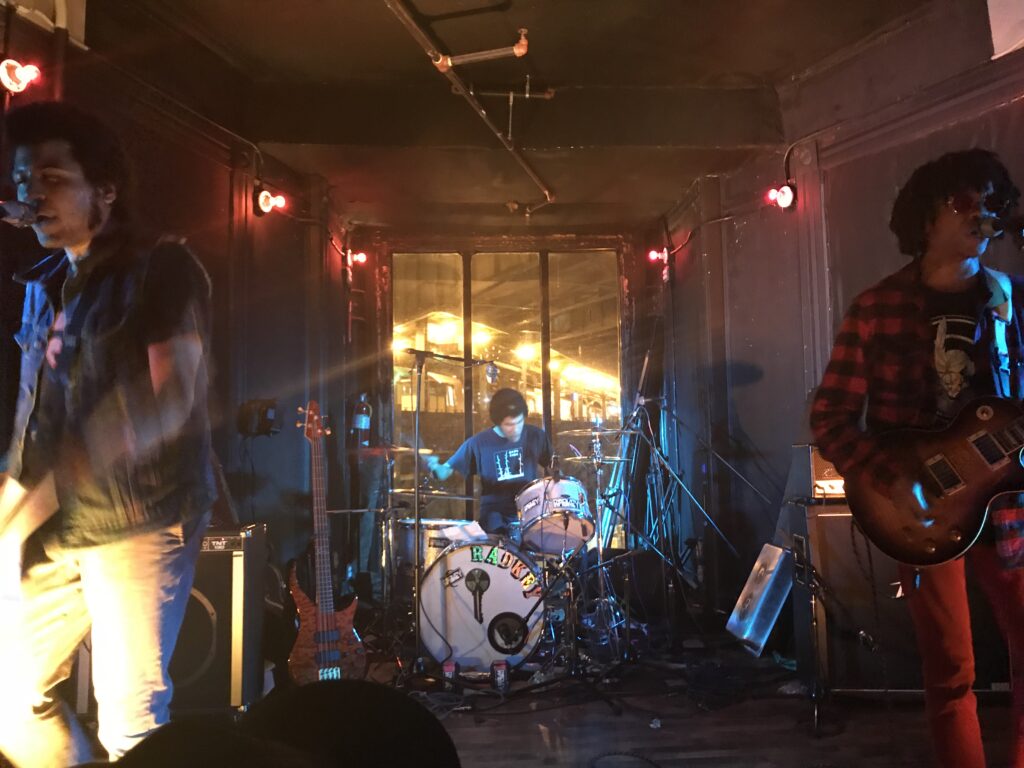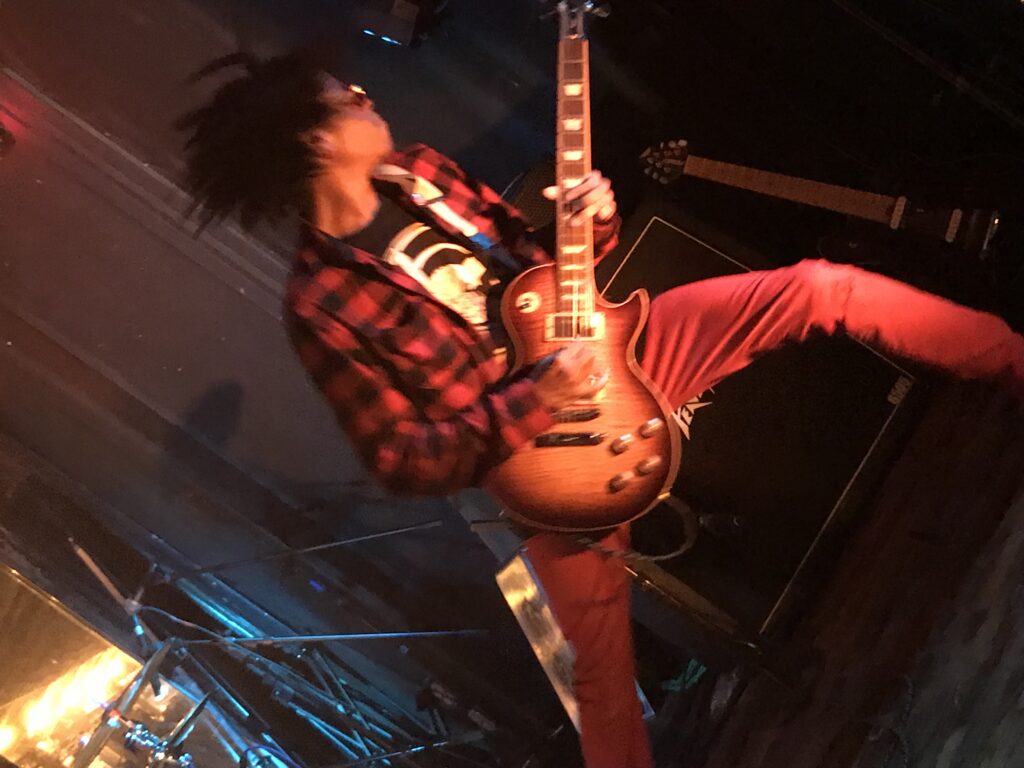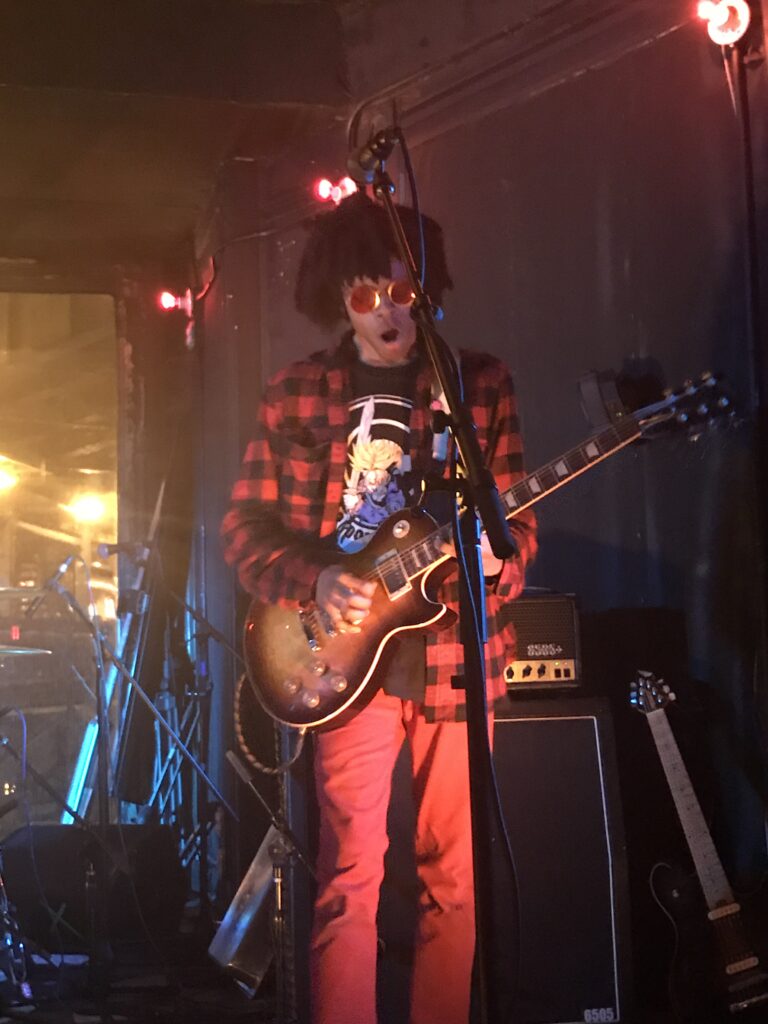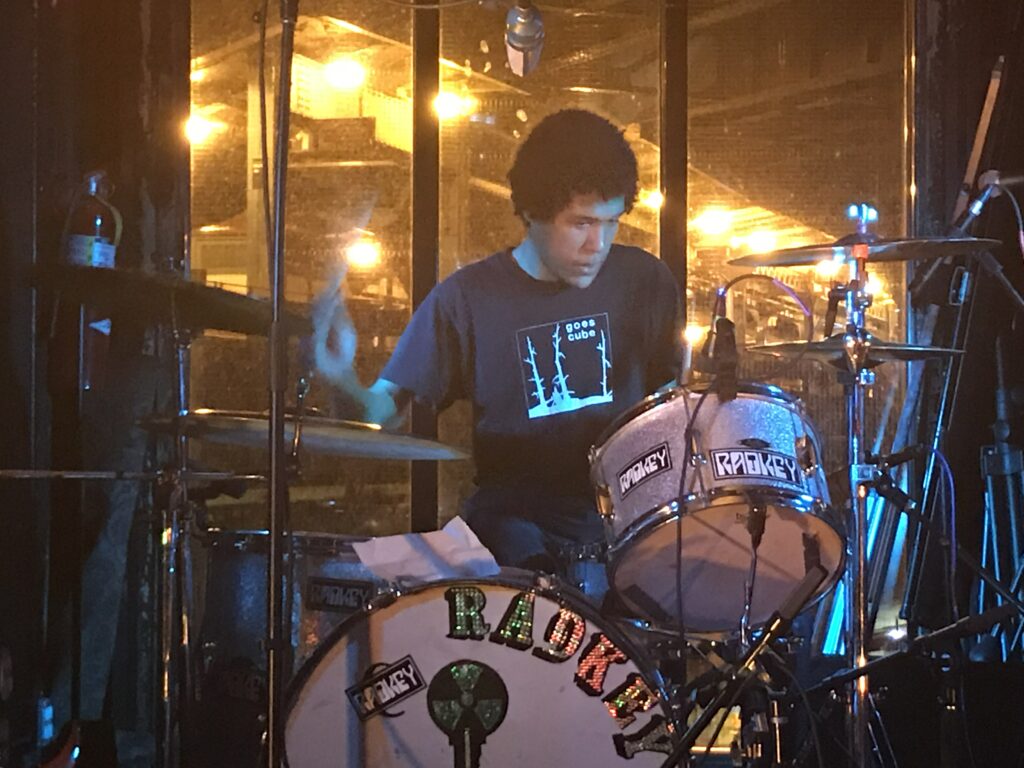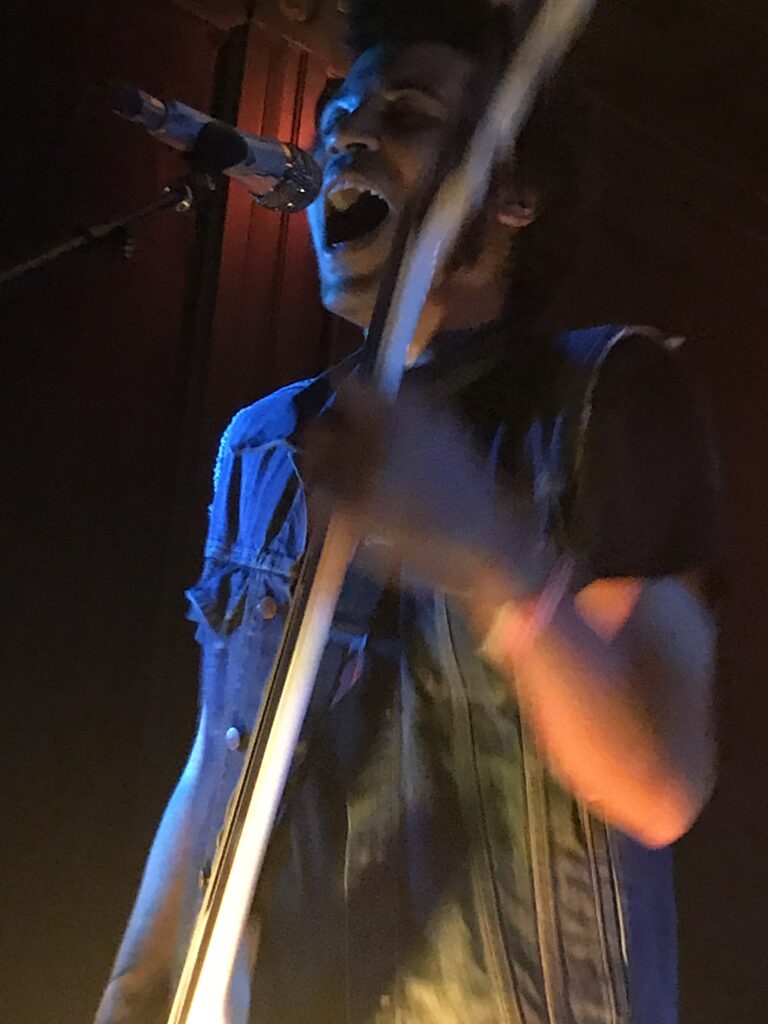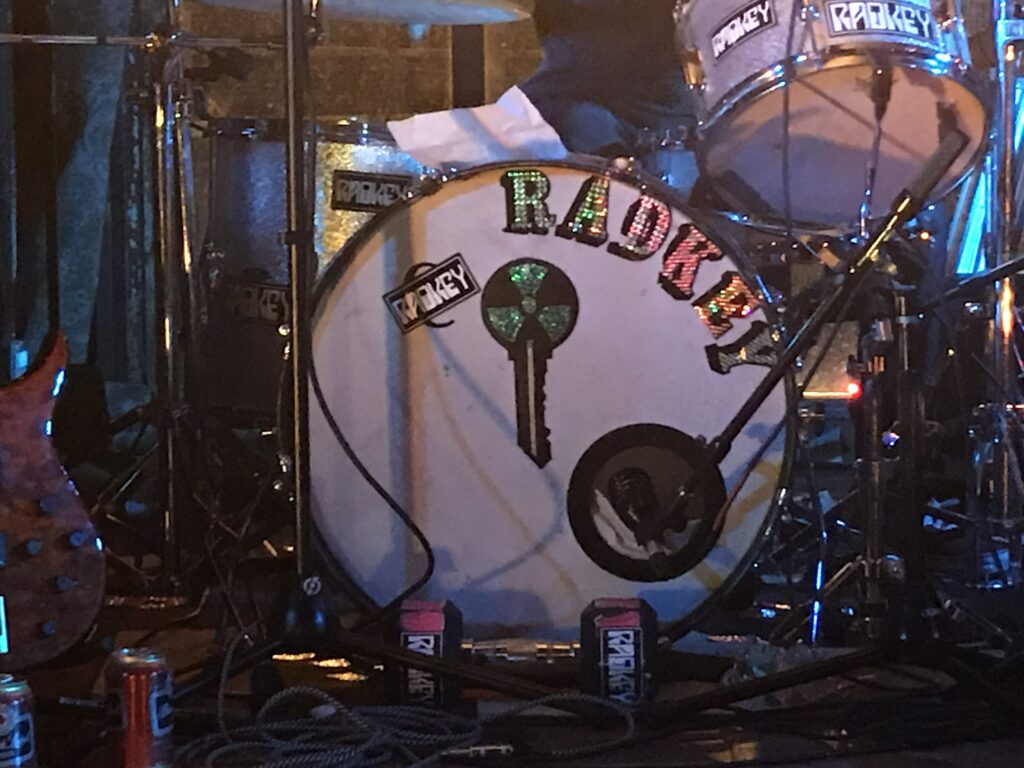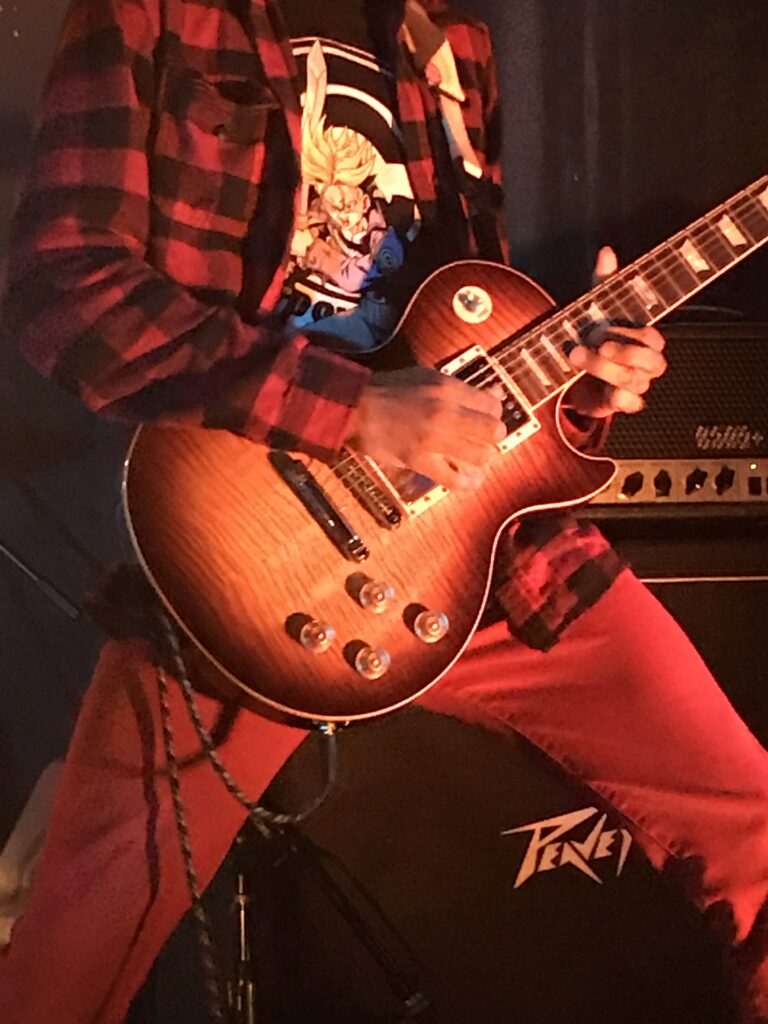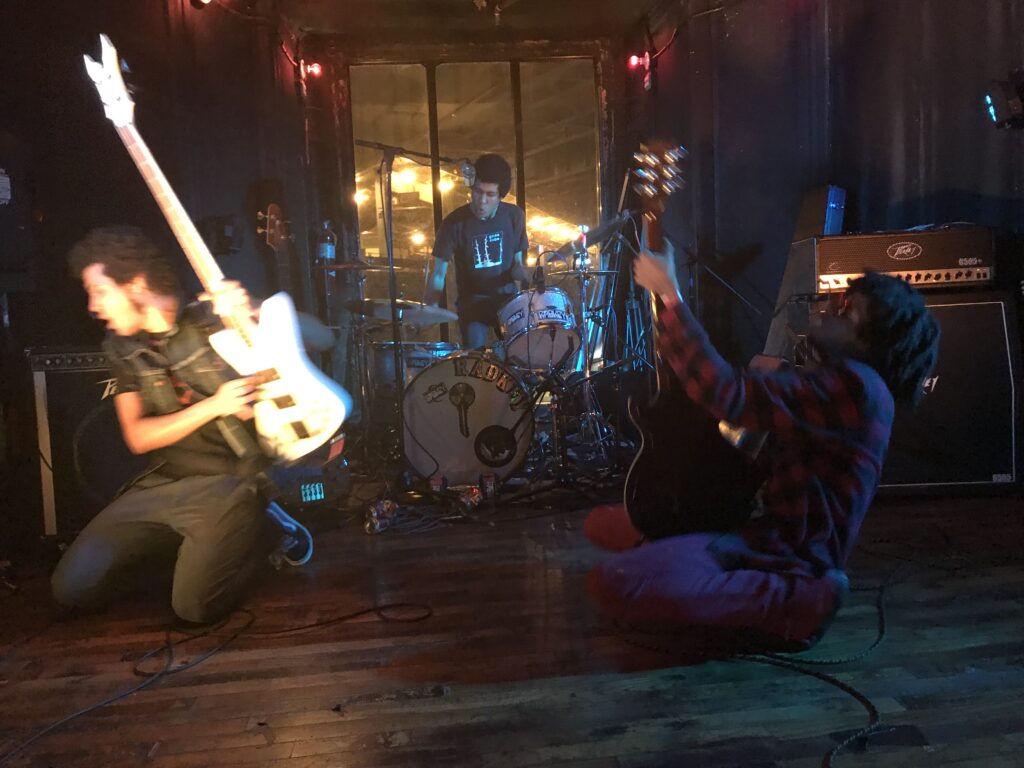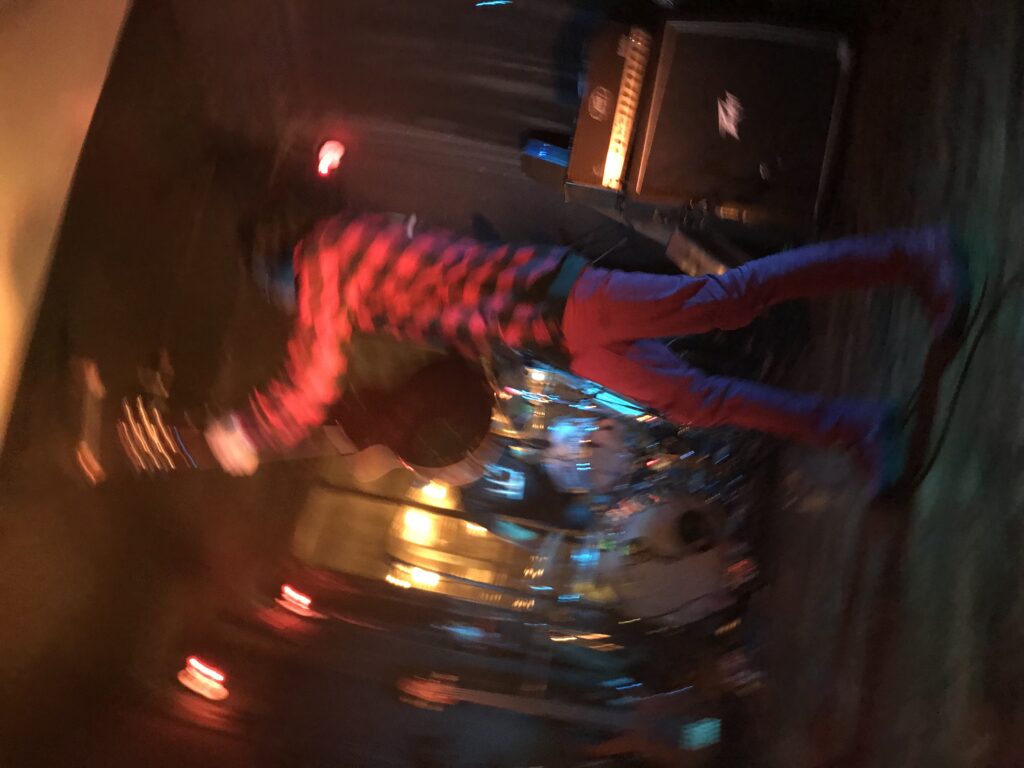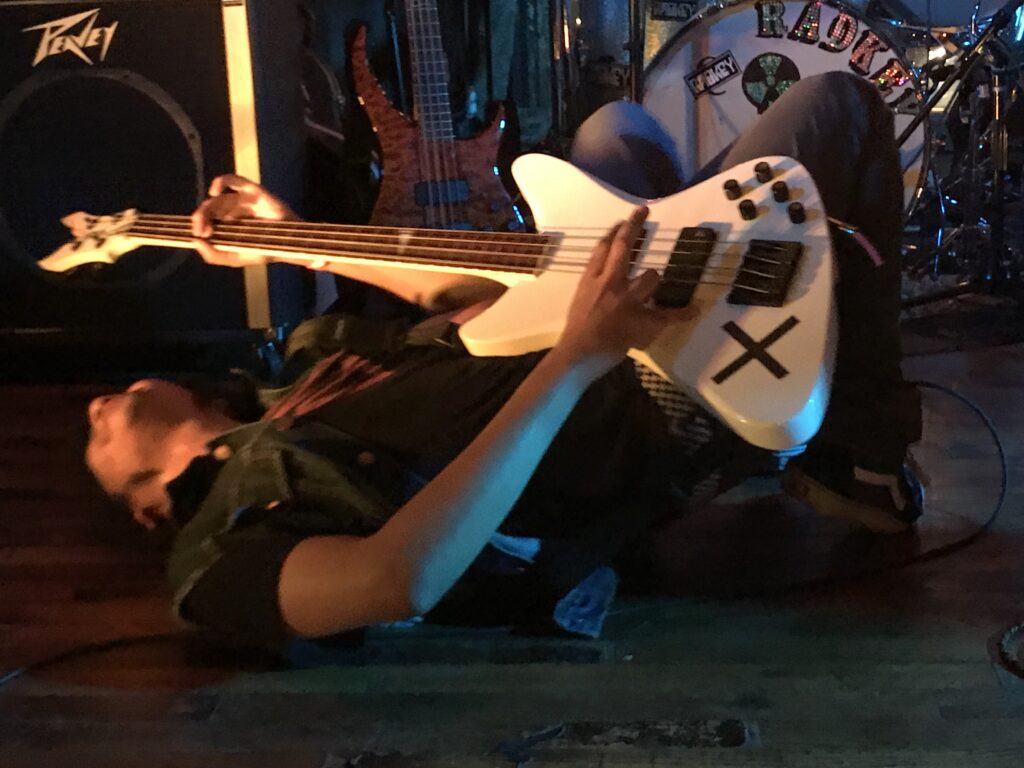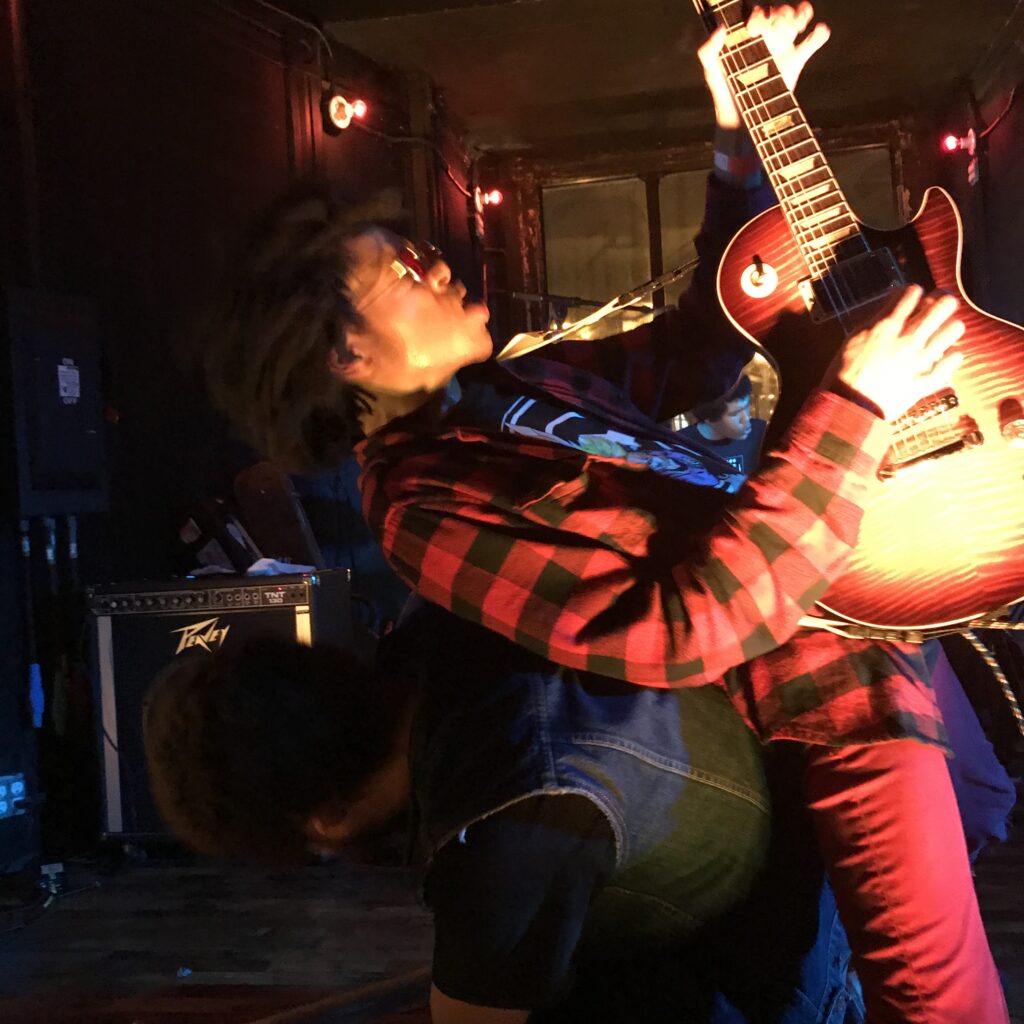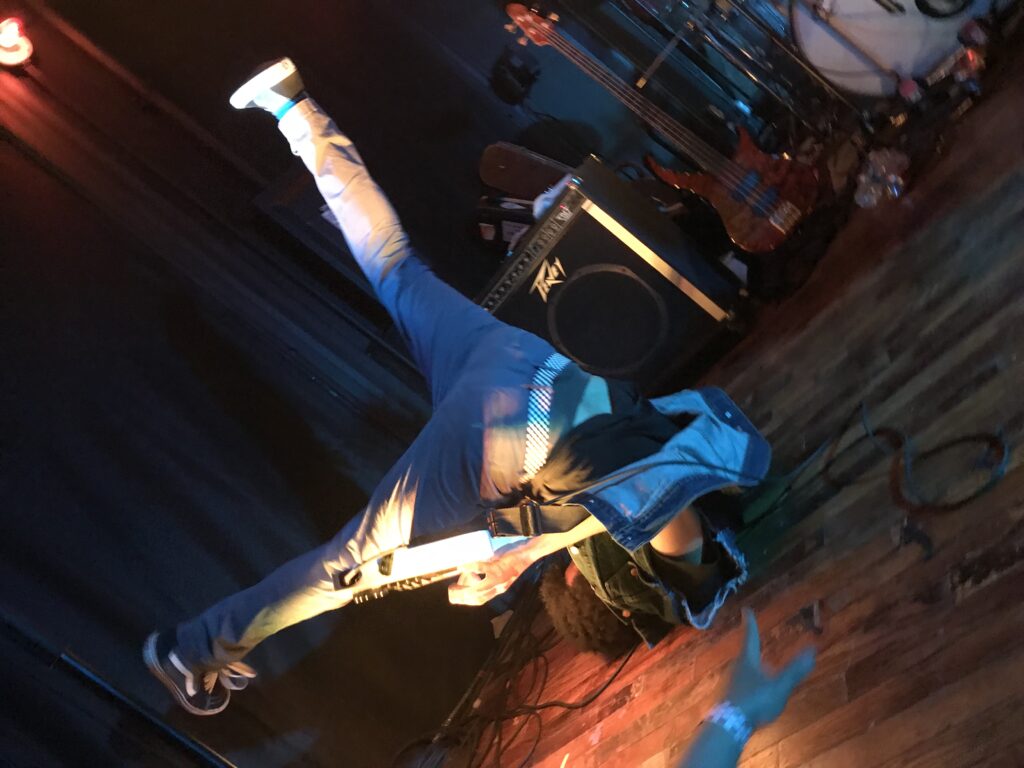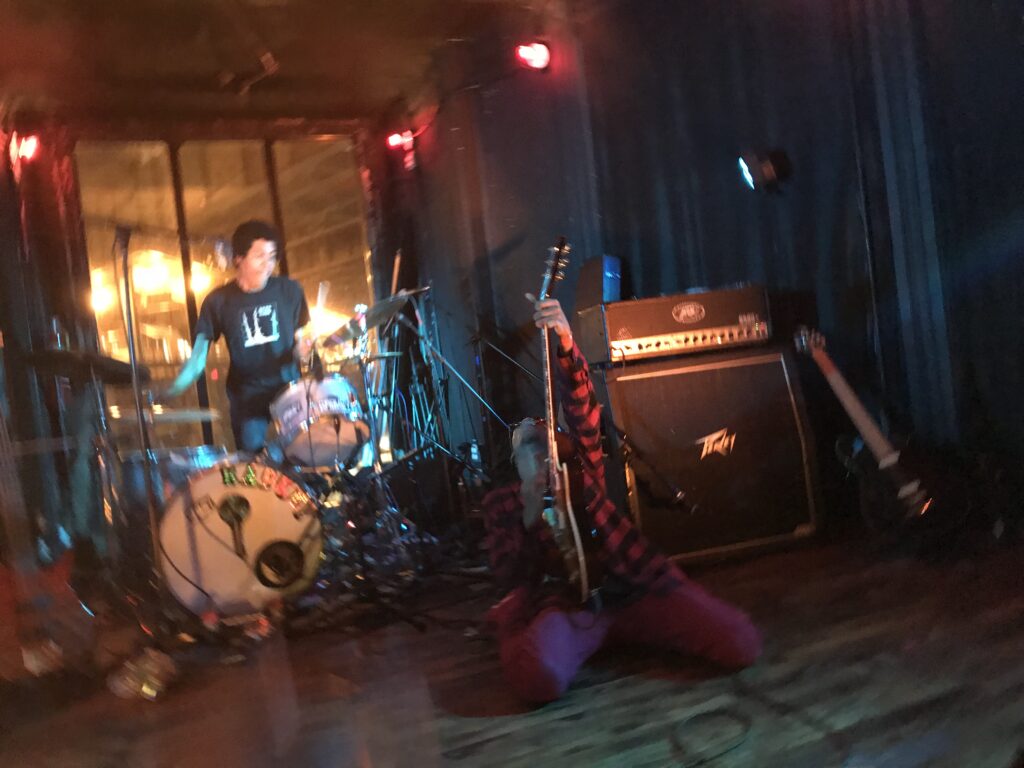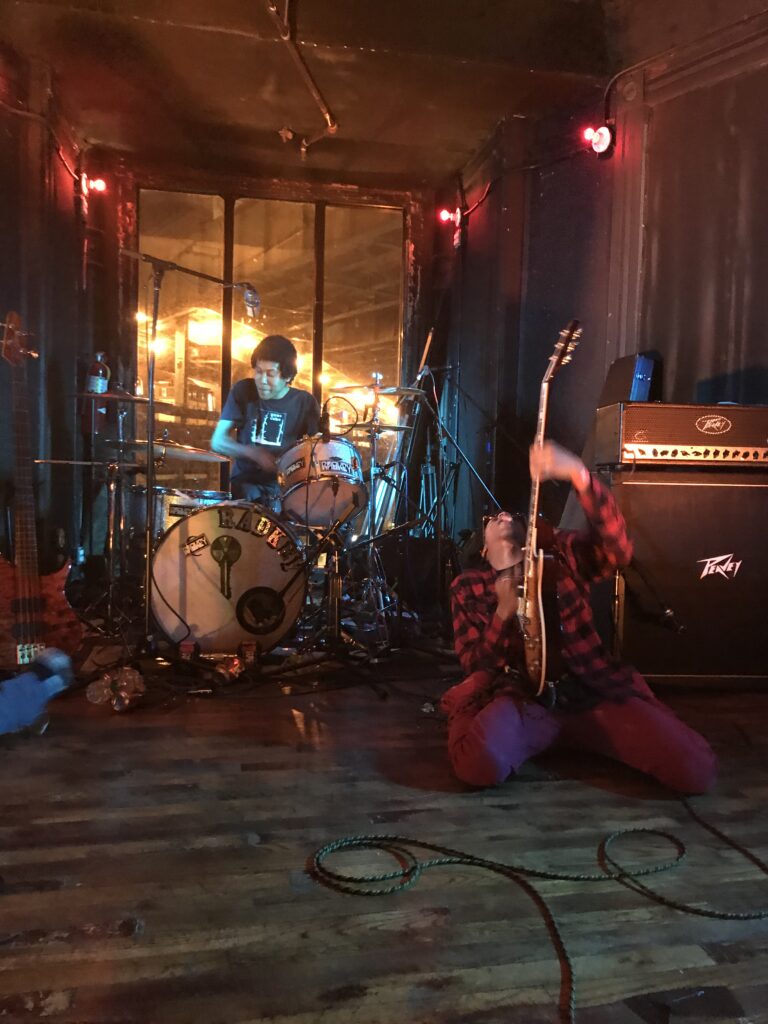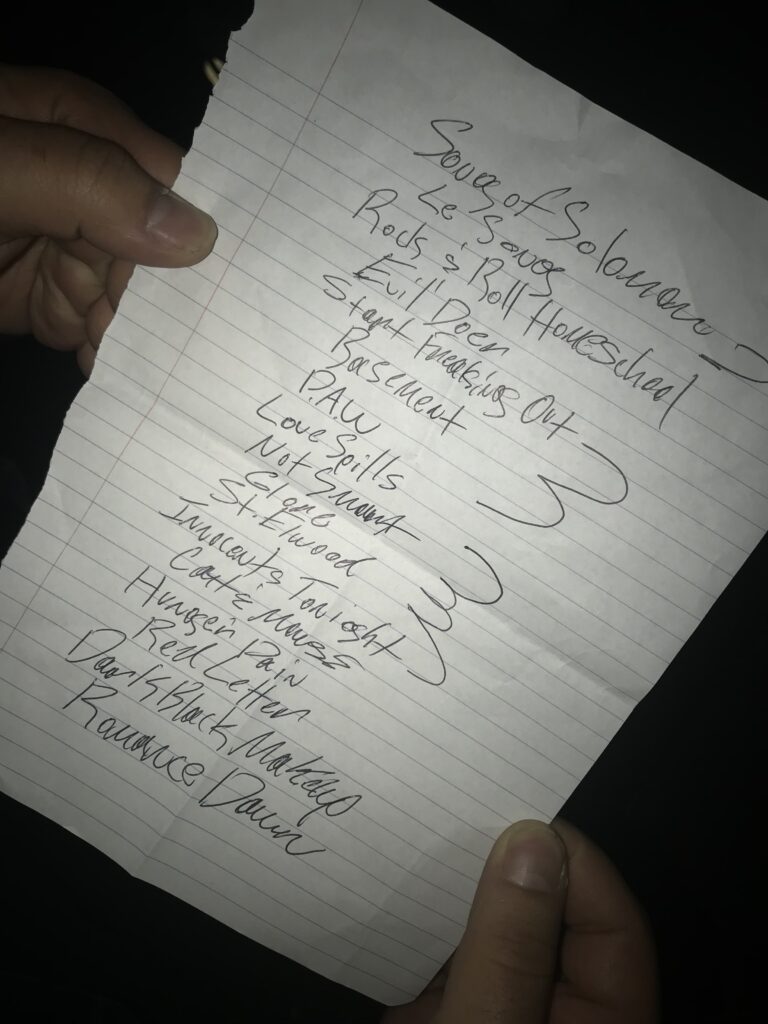At Brooklyn’s Market Hotel this past weekend, three brothers unleashed enough carnal rock fury to fill up the grandstands of multiple arenas. They even drowned out the clattering noise of the speeding J train as it whizzed by behind them mere yards away from the stage. Hell, if you were ever to catch Radkey at a stadium or arena, you wouldn’t have to leave the car-side comforts of bong rips and shotgunned beers in the parking lot to be able to enjoy one of the loudest and best rock shows you’d ever experience. Days later, there’s still a light ringing in my right ear. (No lie. RIP, ear loss.)
Meet Radkey: There’s singer/guitarist Dee Radke who sounds uncannily like Glenn Danzig; bassist Isaiah Radke whose eyes rolled to the back of his skull as he murdered bass lines (aka, the dude who never stops moving on stage long enough for a shitty photographer like me to snap a clear pic); and drummer Solomon, the youngest of the bunch who grips his sticks high and keeps up with his shredding older brothers with ease. Their songs are fast and fierce as if they’re shot out of a cannon…sometimes groove-filled, sometimes punk—but not the pop-punk sound you might expect from a group of young twenty-somethings from the midwest. It’s thrashy and full of attitude, full-fledged Rock with a capital R that’s far beyond their years. A style that would’ve made the city’s CBGB-era legends proud.
The band grew up homeschooled, listening to their dad’s records in the basement of their St. Joseph, Mo. home. Vinyl turned out to be all the education they needed—their aural Bible and greatest inspiration. When the group officially formed in 2010, Solomon was just 12 years old. They picked up instruments and taught themselves how to play, and the following year they scored a slot opening for Fishbone in what would become their very first show.
Before their headlining set in N.Y., the guys talked to TLW about hitting shows as kids, the band’s early days, and their quest to end false rock.
TLW: What was it like growing up homeschooled in Missouri? Do you get sick of people asking about it?
Isaiah: It’s a pretty important part of the band, so we’re not really too bugged about talking about it. It was really easy, kind of boring…you know that’s one of the reasons the band kind of started, just because of having so much free time from the homeschooling. So it was a positive thing.
Your dad’s record collection helped get you into music. What kinds of stuff did he have and when did you guys decide to pick up instruments and follow suit?
Isaiah: Stuff like Led Zeppelin, The Ramones, Nirvana, Weezer, Local H, The Giraffes, Elvis Costello, The Who…all kinds of stuff. Dee started a long time before we did. He was playing drums and played guitar and stuff. After a long while we just decided “let’s do this together, let’s rock a band and work together and collaborate and see how far we can take it.”
How old were each of you guys when you started playing?
Solomon: When we started to all play together, it was 12, 15, and 17. We [Solomon and Isaiah] started playing when the band started, and he [Dee] had been playing for like 10 years or something before.
Tell me a bit about your songwriting process. Where do melodies begin? Who writes the lyrics?
Isaiah: It kind of goes all over the place, honestly. We try to keep it as open as possible, try to jam out as much stuff as possible…it’s all a really collaborative experience. There’s no one set job. Everyone’s dipped into every little piece of whatever it is.
Do you have any early music memory or formative experience that sort of blew your mind and helped shape you?
Isaiah: We saw this band called Year Long Disaster. They were opening for this band called The Sword, and we really liked Year Long Disaster a lot. They’re not a band anymore, I don’t think, but that was kind of a life-changing thing. There was no one up front watching the band and we were the young kids watching. That’s happened to us a couple of times in our career sort of in the beginning. It’s interesting to think about how important that show actually is that no one’s at…because we were at that show and it changed our lives because they didn’t just phone it in. That’s an important thing.
How was The Sword? I bet they were pretty great, yeah?
Isaiah: We…left! We were fully rocked. We were kids kinda and it was like…we had had some solos, “This place is too packed, let’s go home, let’s get some waffle house.” It was too late. It was a college town so that shit was running late. No offense to The Sword, but Year Long Disaster rocked the kids when there was no one up front on that dance floor. Once it started filling up, see ya later…kids, man.
I read that Weezer is your favorite band? Any favorite albums or songs?
Isaiah: I really like “Space Rock” off of Maladroit.
Solomon: I really like “Slob” off of Maladroit.
Isaiah: If you ever want to learn how to really write pop songs that don’t sound too poppy, that’s a really good album because it’s really heavy. And Nirvana did that, too. That’s a really good record, along with Nevermind, if you want to mess with catchy, catchy melodies and hard guitars.
You once said that you were on a “quest to end false rock.” What did you mean by that? What’s “false rock?”
Isaiah: Rock by the numbers. Bands that know every little spot to hit to make sure that their song becomes loved by everybody. Things like Nickelback…they do that kind of thing. It’s just like shit that’s by the numbers—alright, it’s gonna hit this mark, it hits this spot, it’s the same as all their other shit. It’s got to sound this exact way, production-wise…we want to bring back writing interesting rock music that’s not really trying to hit all these specific notes that all these bands have to hit.
Dee: Nickelback.
Solomon: Generic shit.
The video for “Glore” is incredible. Where did that concept come from and who did the claymation for it?
Isaiah: It was our friend, Nicos Livesey, and he was in this band called Throne. He was just a buddy of ours and he had this idea for a music video. He had this channel backing him up financially, it was just a collaborative thing. We sent him a bunch of things we loved and hated, a big list, and he just made a big video out of all that.
Radkey – Glore
In the space of just over two minutes, we’re taken on a psychedelic, mind-bending, face-melting claymation trip through the morphing world of what Radkey love and hate, incorporating too many NSFC (Not Safe For Children) scenes to count and using a variety of claymation techniques heavily influenced by pioneers such as Bruce Bickford and David Daniels.
I read that “Spiders” was inspired by Hunter X Hunter. Has anime or video games influenced any of your other tracks?
Isaiah: They really do, yeah. We have a song called “Junes” and that’s based on a video game called Persona 4 for Playstation 2. It’s kind of an old classic game. You know, we just kind of like to write about what we love and what’s fun to us.
Seems like you guys dig EP releases. Is that a model you’re going to continue going forward? Releasing batches of songs here and there?
Isaiah: For however long it makes sense to us. Right now with the way music’s going it’s all about touring and keeping content flowing, so as long as you’re writing cool songs and putting them out there’s no reason…Weezer’s doing that too. You hear about half of the record before you hear the last five tracks that complete the physical record. It’s just a new climate. You gotta do things differently.
It seems like people gravitate to either vinyl or streaming these days.
Isaiah: Which is great, you can do both. Put your singles out then once those are done, put the physical out and get the collection going.
How do you see your sound changing going forward?
Isaiah: We just want to keep it rocking, keep it the same kind of big thing. We don’t like repeating ourselves a lot, but we just know that we’ll always be rocking.
Any bands you want to play with that you haven’t played with yet?
Isaiah: Weezer. We’ve never played with them, we’d love to. Pixies, that’d be fun.
…and they’re both touring together right now.
Isaiah: Maybe they should hit us up!
